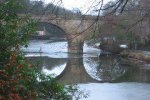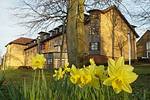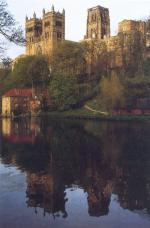
The LMS Durham Research Symposia began in 1974, and form an established series of international research meetings, with over 100 symposia to date. They provide an excellent opportunity to explore an area of research in depth, to learn of new developments, and to instigate links between different branches. The format is designed to allow substantial time for interaction and research. The meetings are held in July or August, lasting up to 10 days, with up to 70 participants, roughly half of whom will come from the UK. Lectures and seminars take place in the Department of Mathematical Sciences, Durham University.

The fields of symplectic and low-dimensional topology were transformed in the 1980s; the former by the work of Gromov using pseudo-homolomorphic curves, and the latter by Donaldson's use of moduli spaces of Yang-Mills instantons to study smooth 4-manifolds. The 1990s saw the introduction of Seiberg-Witten theory; the definitive version due to Kronheimer and Mrowka of the associated monopole Floer homology appeared much later but is now well-established. In the 21st century, there has been a spectacular application of pseudoholomorphic curve techniques to low-dimensional topology in the form of Heegaard Floer theory of Ozsváth and Szabó. This has led to new proofs of many of the main results of gauge theory and new applications to knot theory and surgery problems in 3 dimensions. These theories and others continue to lead to spectacular results and provide surprising and deep connections between many fields.
The purpose of this symposium is to bring together a diverse range of experts working in smooth, contact, and symplectic topology, highlighting the connections and relations between these fields, which, despite their common heritage, have naturally drifted apart. The format will include standard 1-hour talks, open discussion sessions, and shorter 5-minute `lightning talks' by early career researchers.
Note: The scientific programme will start on the morning of August 19th and finish in the afternoon of August 23th.

Useful information about travelling to Durham can be found on the Department of Mathematical Sciences and Durham University webpages.

Accommodation for participants will be in a Durham College. Guest rooms offer en-suite and internet facilities. Attendance is by invitation only.


